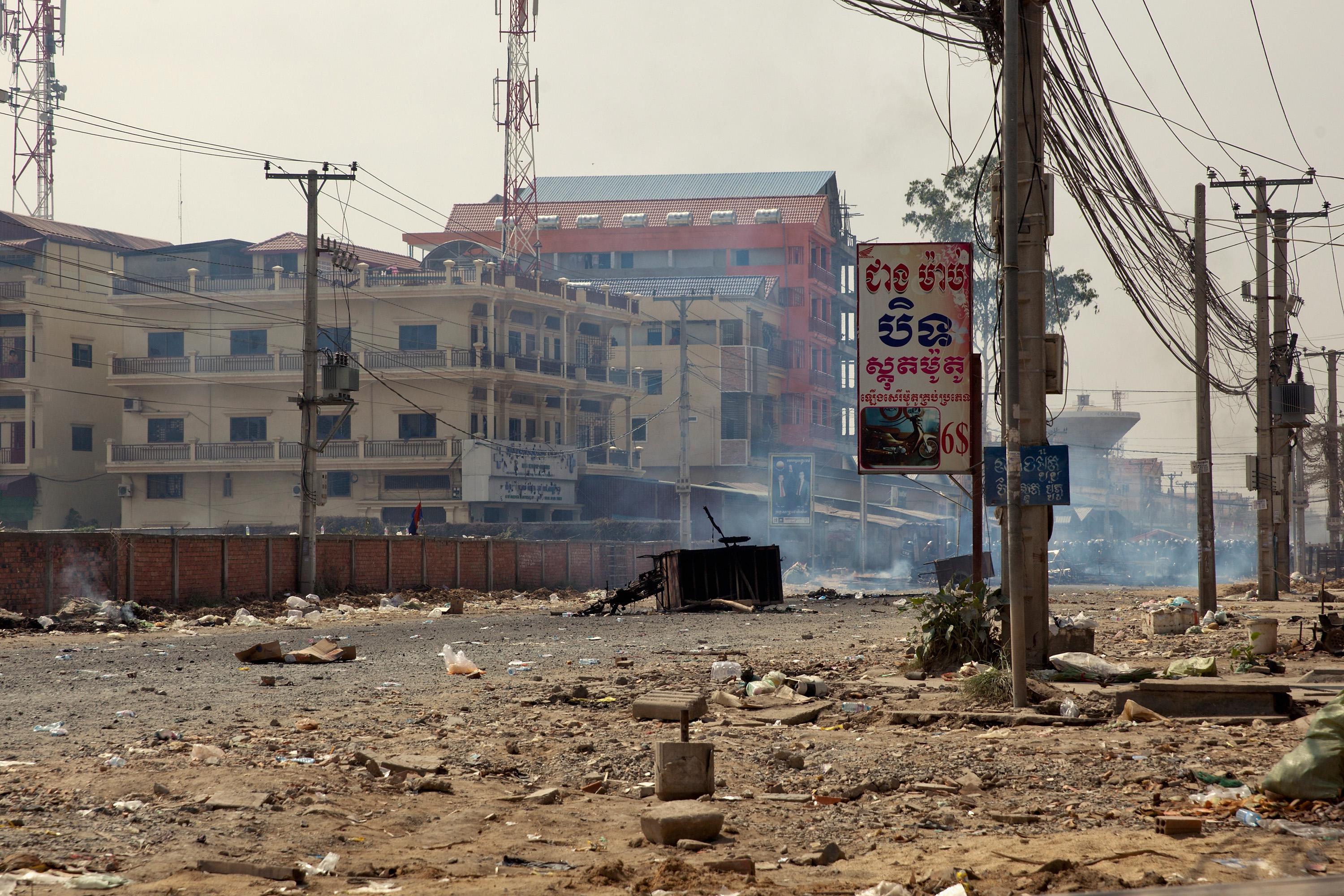We have plenty of political disputes in the United States about the minimum wage, but a Cambodian demonstration in favor of higher pay today ended in violence as police shot and killed three protesters. How does it come to this?
The Cambodian economy has been growing very rapidly: Cambodia is extremely poor and doesn’t dominate the headlines the way China does, but has been enjoying a China-esque prolonged spurt of rapid economic growth with GDP per capita tripling since 2000. That kind of growth is always welcome, but the fruits have not been evenly shared. Cambodia ranks extremely poorly on the Corruption Perceptions Index, coming in at 160 out of 177 countries and well behind Vietnam (116), Thailand (102), or China (80).
The main export industry is garments: The garment industry accounts for something like 80 percent of Cambodia’s exports and it’s growing like crazy, up 32 percent year on year.
Workers want a bigger piece of the pie: As is often the case in societies that are still largely preindustrial, factory owners can exploit the huge gap between the productivity of factory workers and the average productivity in the countryside to reap large profits. Until recently the minimum wage for Cambodian garment workers was just $61 a month, recently raised to more like $80, but labor groups say they want $100. According to the Cambodia Development Resource Institute, earnings in rural Cambodia are considerably below that (PDF) coming it at about $500–$600 per year.
The government has no legitimacy: A mere dispute over wages doesn’t explain the violence. The deeper roots of the clash are a July election, when Cambodia’s main opposition groups forged a united front and mounted the strongest electoral challenge the ruling party had seen in years. The incumbents responded with what international observers say was widespread fraud and stole the vote. The labor protests are linked to opposition politics, and conversely the dispute over wages is seen as a challenge to the regime.
Hun Sen is no ordinary dictator: Cambodia has been ruled for decades by an authoritarian regime under the control of Hun Sen. At one point it was a Soviet-aligned communist dictatorship; more recently it’s revived the monarchy and ditched socialism. But the really interesting thing is that Hun came to power as the Cambodian face of the Vietnamese military, which invaded the country to depose the Khmer Rouge. So on the one hand, Hun was a puppet of a nearby foreign country, which is never great branding. On the other hand, he did depose quite possibly the most brutal and evil government the world has ever seen, which is pretty solid branding. Throughout the 1980s the perversities of Cold War politics led the major western powers to deny recognition to Hun’s regime in favor of assistance to the Khmer Rouge.
